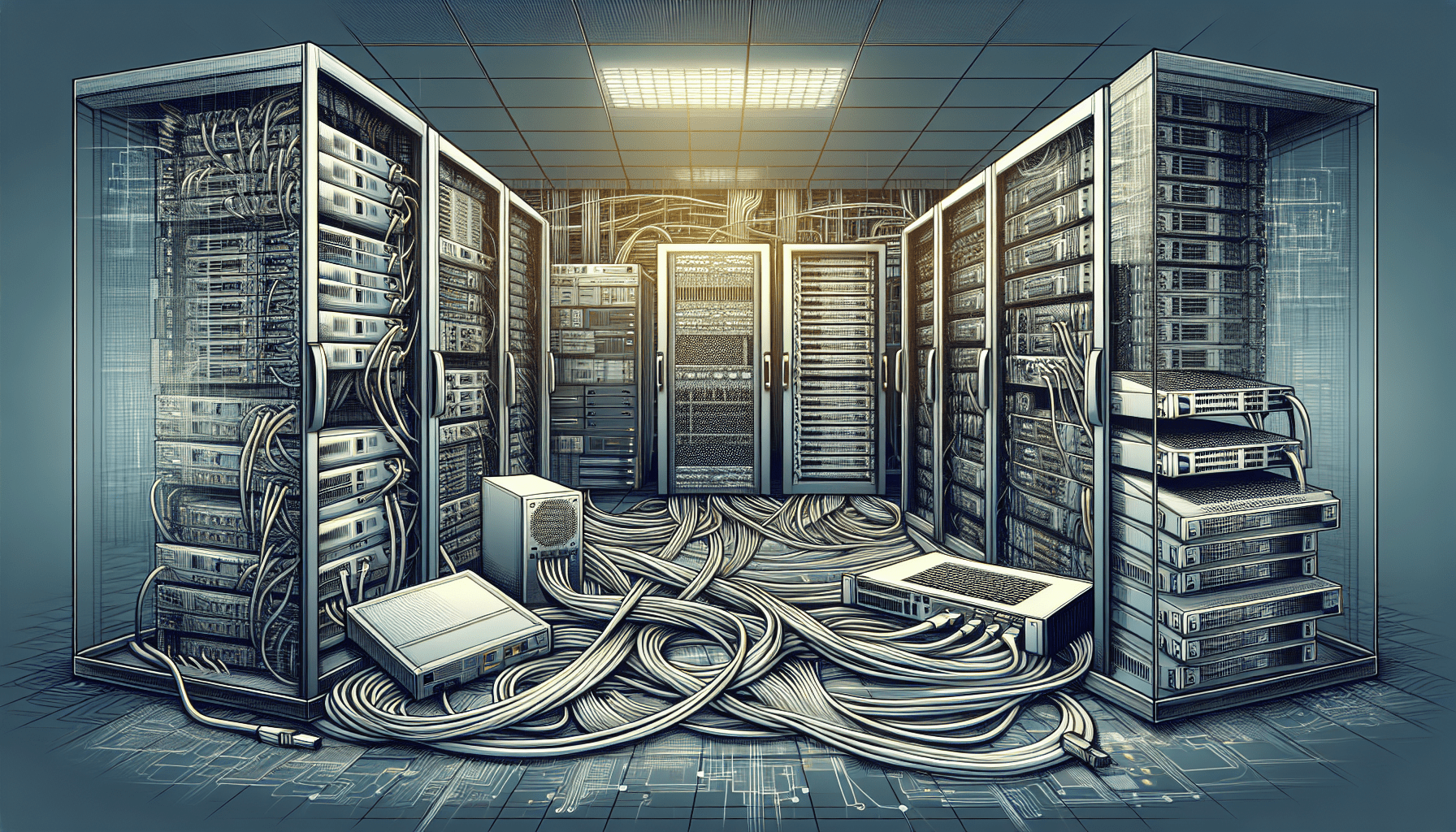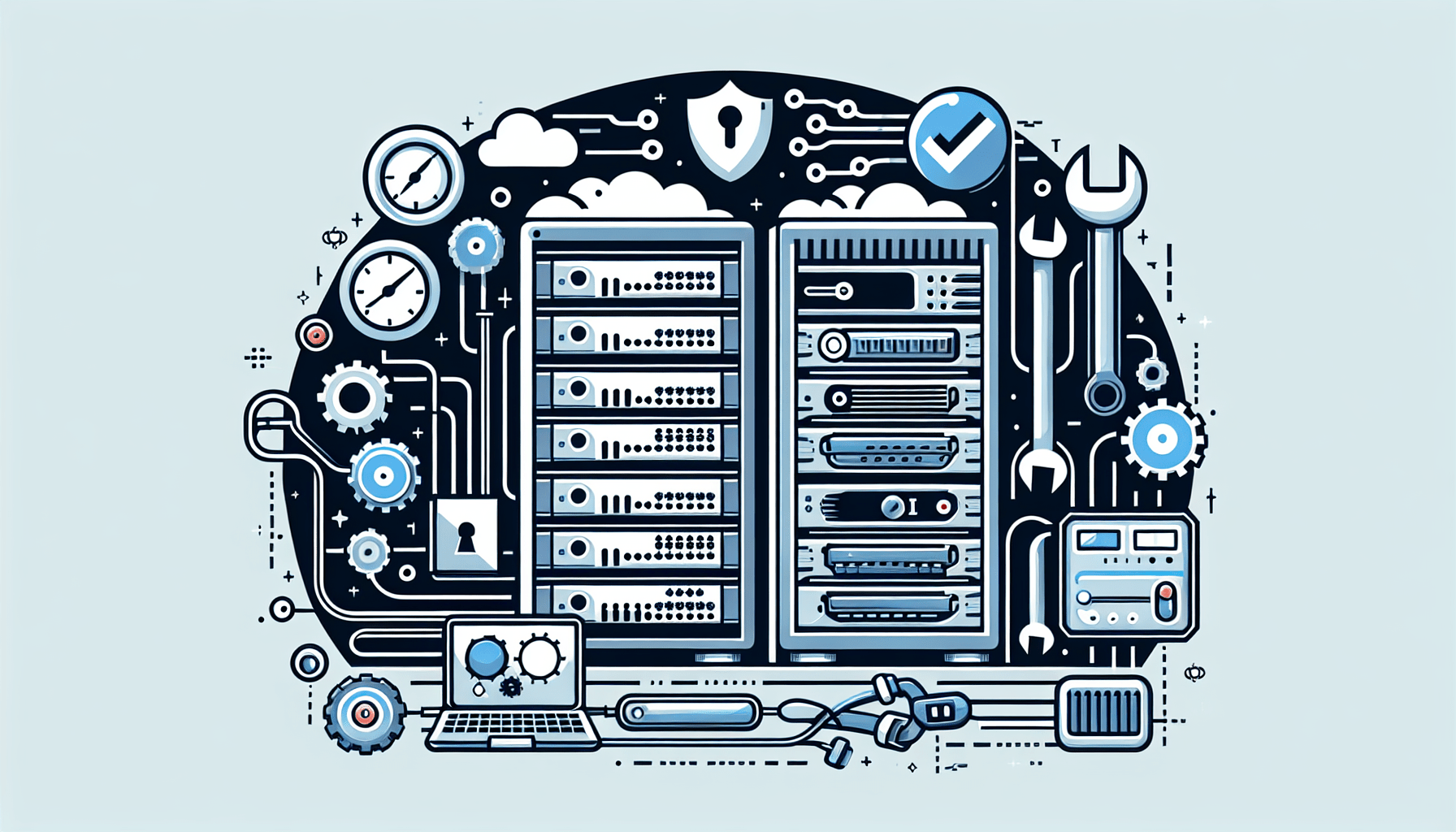Is Dedicated Hosting Right For Your Website?
Are you experiencing slow loading times, frequent downtime, or limited control over your website’s performance? If so, it may be time to consider upgrading to dedicated hosting. In this article, we will explore what dedicated hosting is, its benefits, and whether it’s the right choice for your website.

What is Dedicated Hosting?
Dedicated hosting is a service in which an entire server is devoted to a single client. This means that you have full control over the server’s resources, including CPU, RAM, disk space, and bandwidth. Unlike shared hosting, where multiple websites are hosted on the same server, dedicated hosting ensures that your website has exclusive access to all server resources.
Why Choose Dedicated Hosting?
Dedicated hosting offers several advantages over other hosting options. With dedicated hosting, you have complete control over your server environment, allowing you to customize it to meet your specific needs. You also enjoy better security, as you are not sharing server resources with other websites. Additionally, dedicated hosting typically provides higher uptime guarantees, faster loading times, and better overall performance for your website.
Is Dedicated Hosting Right For You?
Before making the switch to dedicated hosting, it’s important to consider whether it’s the right choice for your website. Here are a few factors to consider:
Traffic Volume
If your website receives a large volume of traffic on a regular basis, dedicated hosting may be the best option for you. Dedicated hosting can handle high traffic loads more effectively than shared hosting, ensuring that your website remains responsive and stable even during peak traffic periods.
Performance Requirements
If your website has specific performance requirements, such as the need for high CPU or RAM resources, dedicated hosting is the ideal solution. With dedicated hosting, you can configure the server to meet your performance needs, ensuring that your website runs smoothly and efficiently at all times.
Security Needs
Security is a top priority for any website owner. With dedicated hosting, you have exclusive access to the server, which means that you have better control over security measures. You can implement custom security settings, install additional security software, and configure firewalls to protect your website from cyber threats.
Budget Considerations
While dedicated hosting offers numerous advantages, it is also more expensive than shared hosting. Before choosing dedicated hosting, consider your budget and whether you can afford the higher monthly costs. Keep in mind that dedicated hosting may be more cost-effective in the long run, as it can help prevent revenue loss due to slow loading times or downtime.
Types of Dedicated Servers
When it comes to dedicated hosting, there are several types of servers to choose from. The most common types of dedicated servers include:
Single Processor Servers
Single processor servers are the most basic dedicated hosting option. They come with a single CPU, limited RAM, and disk space, making them suitable for small to medium-sized websites with low to moderate traffic volumes.
Dual Processor Servers
Dual processor servers are equipped with two CPUs, providing more processing power and faster performance. These servers are ideal for websites with high traffic loads, resource-intensive applications, or complex databases.
Storage Servers
Storage servers are designed for websites that require large amounts of disk space, such as e-commerce sites, multimedia websites, or data storage platforms. These servers offer high-capacity storage solutions to accommodate your data storage needs.
GPU Servers
GPU servers are equipped with graphics processing units (GPUs), making them ideal for websites that require high-performance computing, such as gaming sites, 3D rendering applications, or machine learning platforms. GPU servers offer enhanced processing power and performance for demanding workloads.
Managed vs. Unmanaged Dedicated Hosting
When choosing dedicated hosting, you will also need to decide whether to opt for managed or unmanaged hosting. Here are the key differences between the two options:
Managed Hosting
Managed hosting is a service in which the web hosting provider takes care of server management tasks on your behalf. This includes server setup, maintenance, security updates, software installations, and technical support. Managed hosting is ideal for website owners who lack technical expertise or prefer to focus on their core business activities.
Unmanaged Hosting
Unmanaged hosting gives you full control over your server environment, but it also means that you are responsible for server management tasks. This includes server setup, security configurations, software updates, and technical troubleshooting. Unmanaged hosting is suitable for website owners who have the technical skills and resources to handle server management independently.

Conclusion
In conclusion, dedicated hosting offers a range of benefits, including better performance, security, and control over your server environment. If your website receives high traffic volumes, has specific performance requirements, or requires enhanced security measures, dedicated hosting may be the right choice for you. Consider your website’s needs, budget, and technical expertise before making the switch to dedicated hosting. With the right hosting provider and server configuration, dedicated hosting can help take your website to the next level in terms of performance and reliability.








